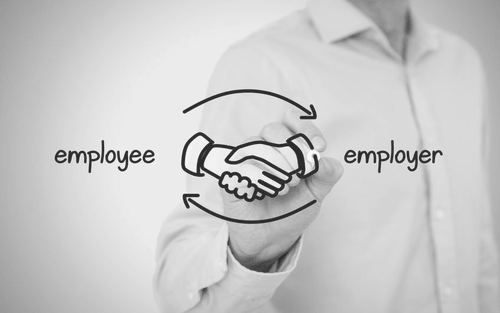Previously, we discussed what employers should do if an employee tests positive for COVID-19 (Coronavirus). In this article, we will discuss what could happen if an employee alleges he or she contracted COVID-19 from the employer and brings a lawsuit.
Workforce Safety and Insurance a/k/a Workers’ Compensation
North Dakota Workforce Safety & Insurance (WSI) provides insurance coverage to employees and employers when an employee is injured on the job. But does contracting COVID-19 at work qualify as an injury on the job? WSI does not recognize COVID-19 as eligible for compensation benefits. COVID-19 is a disease to which the general public is exposed outside of regular employment, like influenza, and therefore is not covered by WSI. Even if the employee may have contracted COVID-19 during employment, WSI states the employee is not eligible for WSI benefits.
Currently, there is an exception for three specific types of workers: frontline health care workers, first responders, and funeral service personnel. This is because Governor Doug Burgem issued Executive Order 2020-12 and Executive Order 2020-12.1 to specifically grant WSI coverage for COVID-19 cases to these three types of workers.
Recent National Case Development
There are several recent lawsuits brought related to COVID-19 in the workplace. Right now there is not a clear direction on what could or would happen on a claim. Two examples are illustrated below. You can see the nature of the claims are spread across the country and involve different nuances of the law.
- Missouri – Rural Community Workers Alliance v. Smithfield Foods, Inc. (2020 WL 2145350) Employees of Smithfield Foods, Inc., a meat processing plant and an essential business, filed a lawsuit claiming Smithfield was not taking adequate steps to prevent the transmission of COVID-19 at the plant and endangered those who worked there and the surrounding community after an outbreak of the virus and designation as a major COVID-19 “hotspot.” The lawsuit also claimed Smithfield was not following CDC guidelines for keeping adequate distance between employees and providing equipment and policies to prevent the spread of the virus. The lawsuit sought a ruling by the court that Smithfield was creating a public nuisance and breached its duty to provide a safe workspace. The court found that after the outbreak, Smithfield took considerable steps to test and prevent the spread of COVID-19 (e.g., thermal screenings, protective equipment, frequent disinfecting, staggered work hours, sending home sick employees immediately, implementing paid leave, announcing new policies and procedures through different media). The court found the employees should have brought their complaint with OSHA, under the primary jurisdiction doctrine, instead of the court because OSHA had expertise and experience in dealing with workplace regulation. Even if the court didn’t find OSHA had primary jurisdiction over these claims, the court said the employees’ speculative harm that they could contract COVID-19 at the plant was not enough to hold Smithfield liable. The court also held that, even if the employees did contract COVID-19, no essential business could completely eliminate the risk that COVID-19 would spread to its employees through the workplace. Where Smithfield was following all guidelines from state and federal agencies regarding a safe workspace, it was difficult to hold the employer liable for the spread of the virus.
- New York – New York State Nurses Association v. Montefiore Medical Center (2020 WL 2097627) A nurses’ union filed a lawsuit seeking an injunction against a private hospital to reduce the risk that nurses would contract COVID-19 at the hospital during their shifts. The nurses’ union asked the court to order the hospital to increase the availability of protective equipment, such as respirators and gowns, make COVID-19 testing available on-demand, and other steps to preserve the nurses’ physical and emotional health. The hospital replied that it was doing everything required of it, and more, by the state and federal government. The court found the nurses’ union and the hospital had a private collective bargaining agreement and arbitration was the proper venue to hear the nurses’ complaints.
Contact SW&L
If you need help making sense of state and federal guidelines as your business reopens and your employees return to work, please send us an email via the contact form below or call 701-297-2890.


